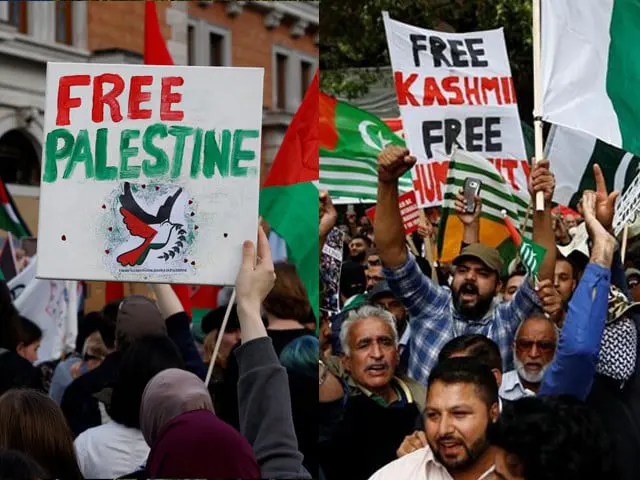Hasan Mandviwalla
Khalil Gibran once said: “Life without liberty is like a body without a soul.” The future of international law is somewhat daunting, and while every country, government or regime is entitled to tell its own story, it appears that international law is perhaps in search of the requisite local support required for effective enforcement, without which there are far-reaching consequences, ultimately resulting in the abridgement of in-country fundamental rights.
I practice law in Pakistan, a country which has inherited a disputed border since the time of its post-colonial independence. The disputed territory of Kashmir itself embodies and encapsulates a humanitarian crisis, which has only intensified upon the revocation of its special status through an executive order of the government of India on August 6, 2019.
The aforementioned resulted in the displacement of people and their property rights, unwarranted violence, unlawful detention and derailment of infrastructure and communication, all of which are ingredients of an existential humanitarian crisis, as well as contributors to the breakdown of law and order. There is one common factor here, however, and that is the ability of international law to come to the rescue. That is exactly why the quote above resonates while we appreciate the desired outcome for the future of international law.
But are we looking in the right direction when calling for a consensus at the United Nations or other like-minded organisations? While Pakistan has representation at the United Nations, and several resolutions have been passed to put an end to the humanitarian crisis in Occupied Kashmir, the problem has only deepened without any fear of violation of international law.
From a day-to-day perspective and looking through the lens of my law practice, the Kashmir issue has put a damper on foreign investment for the less fortunate Pakistan, which is trying to find an international balance by joining other not-so-economical causes, such as the war on terror in order for Pakistan to align itself diplomatically and maintain its geopolitical relevance.
The Pakistan entertainment industry that once thrived across the border in terms of performances and collaborations between Indian and Pakistani movie stars and artists has also suffered as a result of the Kashmir crisis. This manifested locally, resulting in the deprecation of the cinema industry in Pakistan, which was only viable because of Indian films, especially since both countries share a common language.
Recently, despite a bilateral self-imposed ban, the Bombay High Court has clarified that there is no prohibition on the exchange of talent between countries. This demonstrates the significance of local law support, a positive step in the right direction for the future of international law, which is likely to be augmented by the shift in popular consensus vis-à-vis local celebrities and likeable personalities flooding the Indo-Pakistan entertainment industry.
So here I am, a decade-plus into my career as a commercial lawyer, yearning to be a part of something bigger and greater with aspirations to play a role in the future and development of international law and territorial disputes, perhaps bringing the Kashmir issue to the forefront of international adjudicating bodies to set an example for the ensuing humanitarian crises faced in Gaza and the West Bank today.










